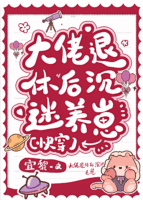I Have A Store C200
by MarineTLChapter 200: Pig Slaughter
Director Ding’s father-in-law had just come back from fishing.
As a retired cadre, fishing and playing chess were among his few hobbies.
He went fishing quite often, but rarely came back with any catch—it was more common for him to return empty-handed.
“Father-in-law, out fishing again?”
“Shengtai, you’re home early today?”
The old man dodged the fishing question and changed the subject.
He had no choice—he hadn’t caught a single fish today. If he had, he wouldn’t need anyone to ask; he could go on about it until the next day, maybe even pass by his own front door three times without going inside.
“Today at the factory… Father-in-law, look at this lobster—still alive.” Ding Shengtai first explained what happened at the factory, then opened the foam box to reveal the live lobster and abalone inside.
His father-in-law initially nodded with approval, clearly appreciating that particular subordinate of his son-in-law. But when he saw the big lobster, his eyes widened.
Even for him, getting a live lobster was no easy task.
He wanted to ask, “Who exactly is that subordinate of yours?”
A subordinate who’s this capable and well-connected? That’s the dream! His son-in-law was lucky to meet someone like that.
“Comrade Zhou Yimin, right? You’ve mentioned him a few times. If there’s a chance, invite him over for a meal at our house,” the old man said.
Ding Shengtai let out a sigh of relief. That remark meant his father-in-law thought highly of Zhou Yimin and was looking to bring him into his circle.
Just as he expected, those two big lobsters ended up as gifts from his father-in-law.
…
In Zhoujiazhuang, the villagers were highly motivated to harvest the wheat quickly so they could have pork sooner. The progress was going well, and with the addition of the threshing machine Zhou Yimin had invented, things moved even faster than in previous years.
The next day, the old village secretary had already arranged for someone to bring out a particularly fat pig from the village’s pigsty. If it weren’t for the intense labor of wheat harvesting and the presence of people from the commune, they wouldn’t have been willing to slaughter one at all.
Keep in mind, the village only had ten pigs—eight of them were reserved for quota assignments, and only two could be freely used. If any problems came up during the raising process and they couldn’t meet the quota, they’d be in serious trouble.
Slaughtering pigs is a skilled trade.
But in these times, when people weren’t even eating enough to stay full, meat was a luxury that might not be seen all year. So not many people actually knew how to slaughter pigs anymore.
In ancient times, pigs were raised not just for food but also for sacrifices. Due to the large number of slaughters, a specialized trade of butchers developed. “Pig slaughtering” became a skill passed down through generations.
In Hebei’s eastern regions, places not populated by Hui Muslims didn’t have many workshops for slaughtering cattle or sheep, but pig slaughterhouses were quite common, since pigs were considered regular food stock.
Soon, Zhou Xuqing and a few others brought the pig to the prepared location. On the ground were tools specially made for pig slaughtering.
These tools included the disemboweling frame, the slaughter table, the hair-singeing stove, a short and thick lasso pole used both to control the pig and to pound it during the air-blowing process, the bracing stick to stiffen the pig, scraping planes for removing hair, and the pointed butcher knife known as the “Qin stick” or “Nang knife.”
For those who sold pork, there were also large butcher knives used to sever the head, limbs, and split the carcass.
The large knife had a thick blade and back, with considerable weight and symmetry on both ends. A smaller, sharper knife called the “Trimming Knife,” light and pointed, was used for cutting meat and removing bones. It was nicknamed “Second Blade.” In the past, meat was sold without separating bones and flesh.
The best knives for this trade were forged in Ciyutu and Ganyu Village. Among them, the “Ganzheng knife” was the most famous, favored by nearby artisans.
Zhou Xuqing and his crew tied the pig to a table. Its four legs were bound, and it could only cry out in distress—not that it would change anything.
One of them jumped up on the table, expertly pinning the pig with a leg while holding its jaw with one hand and pulling it back. Once the throat area was exposed, he drove the pointed knife in with his other hand, twisted it slightly, and pulled it out.
The first stab didn’t seem deep enough, so he stabbed it again.
Pig’s blood gushed out immediately, flowing into a prepared basin underneath. Then he put the knife aside and used both hands to move the pig’s head while pressing on its belly to drain the blood completely.
Pig’s blood is a delicacy and absolutely should not be wasted.
Zhou Xuqing joked, “Uncle Cheng, you must’ve killed too few pigs lately—your skills are getting rusty. You couldn’t even do it in one stab.”
“No choice. Maybe I’m out of practice, or maybe it’s just that the food these days is too lean—feels like I have no strength left,” Zhou Cheng said, shaking his head.
A second stab is considered inauspicious when slaughtering pigs. Even though pigs are common livestock and it’s only right they suffer one cut, a butcher should ideally deliver a “clean kill” in one stroke. If more are needed, the pig suffers unnecessarily, and the butcher is said to be “committing sin.”
Like other trades, pig slaughtering has its own patron deity. This profession mostly honors the famous Shu-Han general Zhang Fei from the Three Kingdoms era.
That might seem bizarre.
What does Zhang Fei have to do with this?
As it turns out, Zhang Fei was originally from Zhuojun and made his living selling wine and slaughtering pigs. He was skilled with a butcher’s knife—his cuts were precise and always on point. People nicknamed him “Zhang One-Cut.”
One day, someone came to buy two strings’ worth of meat, and Zhang Fei mistakenly cut only one string’s worth.
When the customer complained about the weight, Zhang Fei replied, “I’m the famous Zhang One-Cut. I don’t make a second cut.”
The customer dared not argue and left dejectedly. On the way back, he ran into Guan Yu, who sold tofu and stood up for him.
Guan Yu offered to buy two strings’ worth of meat and threw down one string’s worth of cash. Zhang Fei said that wasn’t enough.
Guan Yu replied, “I’m the famous Guan One-Grab. I don’t pay twice.”
The two argued and got into a fight.
Just then, Liu Bei passed by carrying a shoulder pole after selling straw sandals. Seeing the fight, he stepped in with his pole to separate them and said, “Enough! You, stop with your Zhang One-Cut; and you, stop with your Guan One-Grab. You both take a look at me, Liu One-Carry.”
The three of them burst into laughter. From that moment on, they became sworn brothers and went on to accomplish great things.
Liu Bei became an emperor and a regional warlord, while Guan and Zhang became his trusted generals.
Because of Zhang Fei’s background in slaughtering pigs, butchers regard him as their ancestral patron. Some even honor all three—Liu, Guan, and Zhang—as the “Three Saints” or “Three Saint Wealth Gods.”
The slaughtering site was quickly surrounded by a group of children, their eyes fixed on the pig like they wished they could eat the pork right away.
Zhou Cheng wasn’t fazed. He deftly untied the pig, sliced open a small cut near the back leg tendon, and inserted the bracing stick.
He pushed it in all the way to the base of the ear, then pulled it out. He repeated this for the pig’s back and belly, then inserted the stick through the hind flank and into the other leg.
The pig was flipped over, and the other side was worked the same way to loosen the skin. Then the stick was removed.
Next, air was blown into the pig’s body through the opening, while others tapped the body with a wooden rod. The pig inflated like a balloon, making it easier to scrape off the hair.
Zhou Cheng tied off the air hole with a hemp rope, and together they hoisted the pig onto the stove.
The cauldron was already filled with boiling water. They plunged the pig in and quickly rotated it so the entire body was scalded thoroughly.
While the body was still warm, Zhou Xuqing shaved off all the hair. Then, the pig was hung up on a wooden rack.
(End of Chapter)










0 Comments